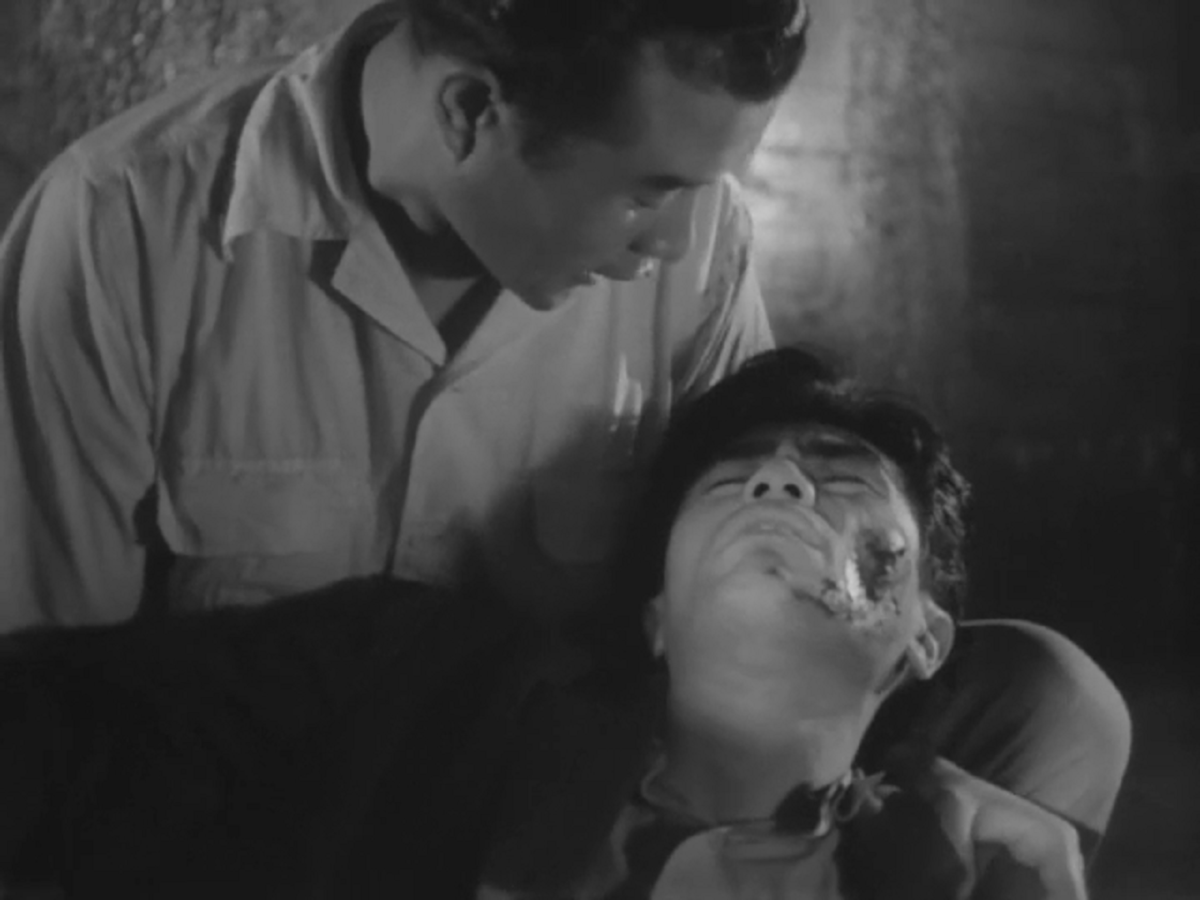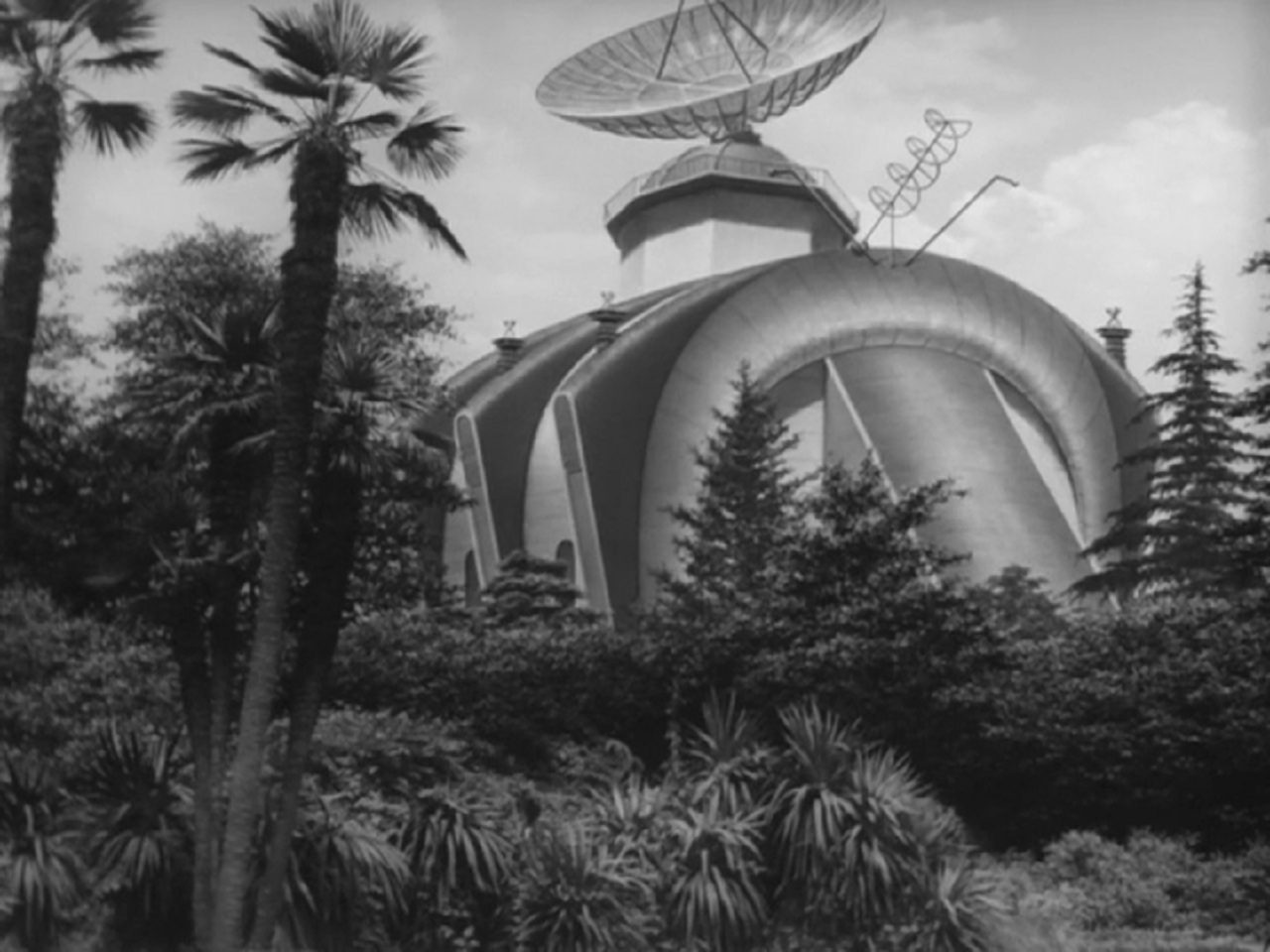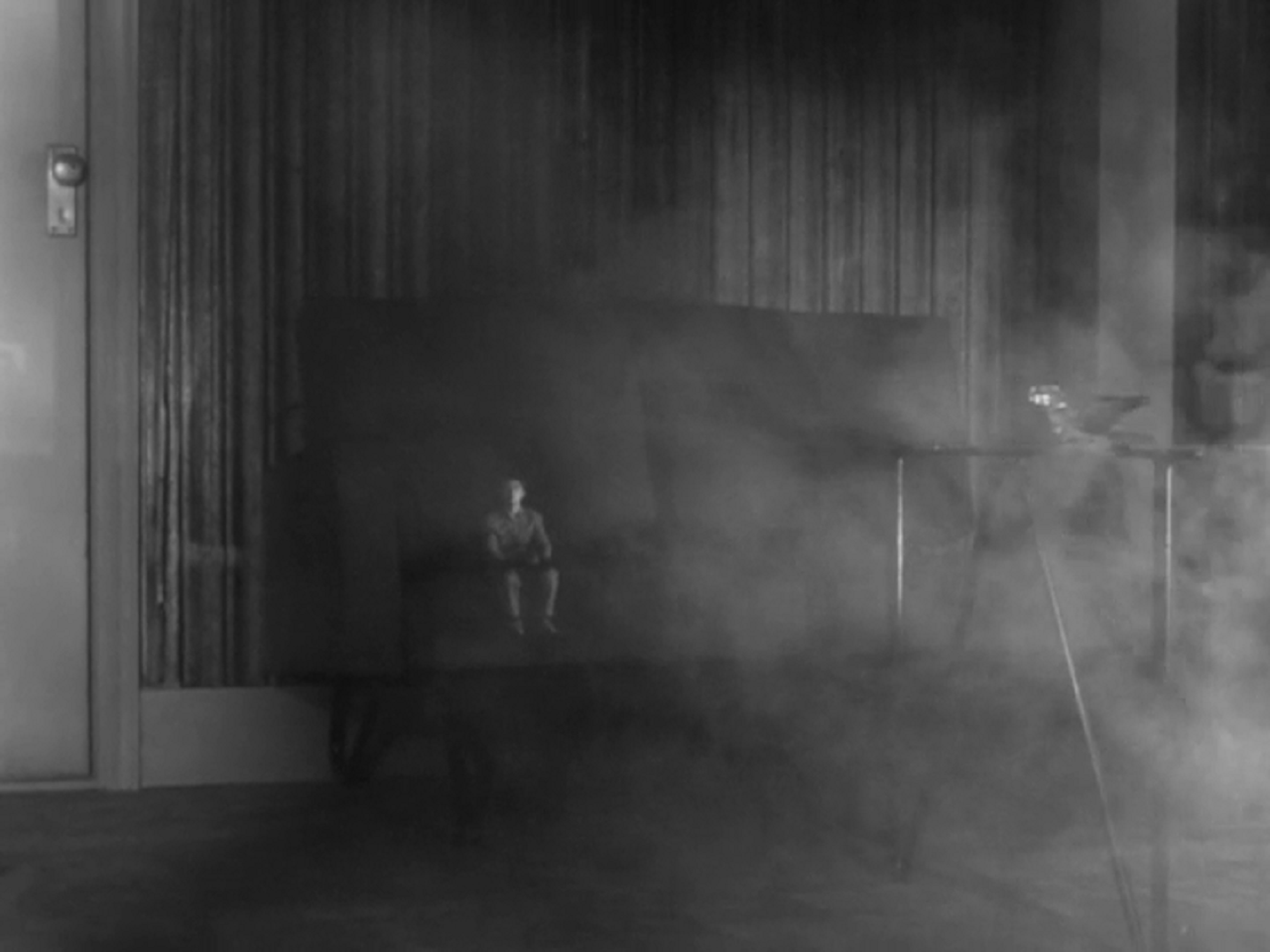Last Updated on October 6, 2020 by rob
A man is killed aboard a packed jet flight but none of the crew or passengers see or hear a thing. Inspector Wakabayashi (Yoshiro Kitahara) discovers that fellow passenger Professor Hayakawa (Shozo Nanbu) has invented an invisibility ray and wonders if that’s the link to a series of baffling murders and bank robberies. But when the culprit turns out to be Yamada (Shizuo Chujo), a bloodthirsty psycho addicted to a drug controlled by Kusunoki (Ichiro Izawa) that can shrink him to the size of a fly the good guys fight back using Hayakawa’s invisibility ray!
A likeable SF murder mystery/police procedural from Daiei in similar vein to Toho’s late 50’s trio of The H Man (1958), The Human Vapor (1960) and Secret Of The Telegian (1960). In fact the latter actually reuses the central plot device here of a villain whose power turns out to be a secret WW2 weapon. The villainous Kusunoki uses his lackey Yamada so he can take revenge on the former army comrades who, after hiding the drug on an island during the final days of the war, left him behind to take the rap as a war criminal. The characters here are a pleasant if largely unremarkable bunch but the film has compensations in a story with lots going on.
For starters there’s quite a high body count, with the nature of the murders suitably grisly (the villain creeps up behind his victims and stabs them in the back right through the heart) but the darker moments are offset by some nicely judged moments of humour, not least the scene where Prof Hayakawa’s eager junior assistant Sugimoto tests the Prof’s ray on himself before turning up at the family dinner as an invisible guest! Even as the film toes the line as a police procedural more room is given to the SF elements here than in its Toho equivalents. After Yamada dies attempting to steal the Professor’s invisibility device the power hungry Kusunoki uses the drug on himself and terrorises the city before demanding that Inspector Wakabayashi hand the invention over to him in person. This is where the film delivers on the promise in the film’s outrageous title as Tsukioka figures the only way to deal with the increasingly destructive Human Fly is to make himself invisible thus levelling the playing field.
The notion of the heroes using the fantasy elements on themselves to combat the villain feels like something new for the genre and epitomised in the scene where big baddie Kusunoki gets a taste of his own medicine as he’s smacked around by an invisible Tsukioka. There’s even a dollop of adolescent pulp eroticism in a scene where The Human Fly buzzes down onto the voluptuous, scantily-clad body of nightclub hostess Mieko with whom he’s become obsessed. Mitsuo Murayama’s direction is rather workmanlike but with atmospheric lighting courtesy of cinematographer Hiroshi Murai he manages a couple of decent setpieces in the deaths of nightclub manager Kuroki and the agreeably sexy Mieko. The electronic toots and whistles of Tokujiro Okubo’s score are notably atypical of the genre (this is the only Japanese fantasy film I’ve heard with this kind of score) but it makes a fine match for the bizarre goings on.
The invisibility/shrinking effects (the sight of a tiny human figure buzzing around the screen like some miniature Superman and shrinking or enlarging in a cloud of gas) are achieved by simple superimpositions or a tiny model moved on a wire but they’re quite well done and the filmmakers don’t make the mistake of keeping the effects on screen for any longer than they have to be. In scenes where props are lifted by an invisible hand I couldn’t spot any wires at all. The film culminates in a modest yet effectively staged rooftop showdown in which Kusunoki attempts to fly off in a helicopter only to be unexpectedly thwarted by an unwanted guest. I particularly liked that the usual cautionary genre finger-wagging of the ‘There are some things man was not meant to know’ variety are sidestepped in the film’s coda in favour of Tsukioka and the Prof’s daughter Akiko (Junko Kano, who unexpectedly comes into her own in the film’s climactic scene) retaining their invisibility powers in front of a gaggle of reporters for a comic/romantic payoff. All in all, not bad at all.



